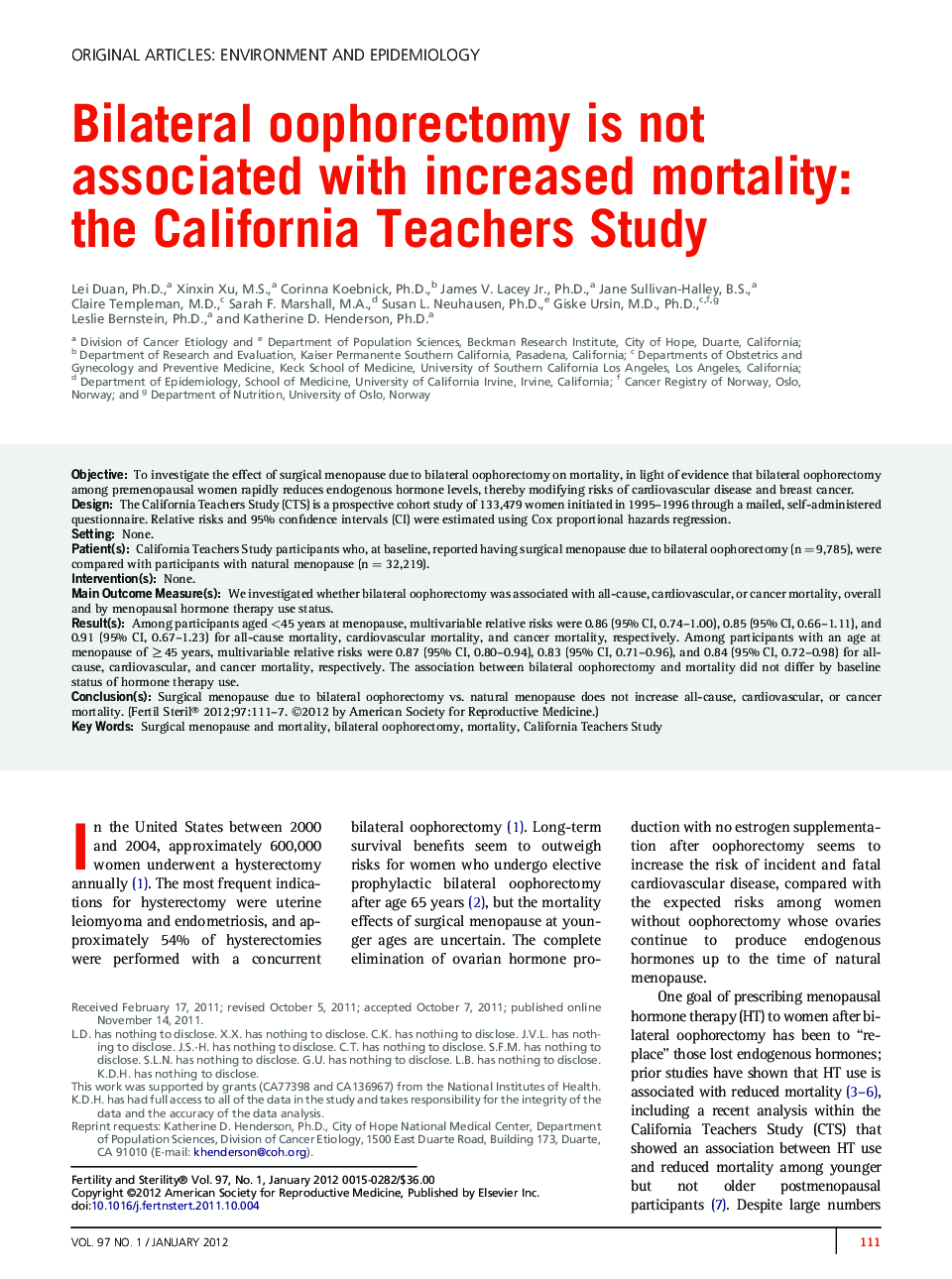| Article ID | Journal | Published Year | Pages | File Type |
|---|---|---|---|---|
| 3937450 | Fertility and Sterility | 2012 | 7 Pages |
ObjectiveTo investigate the effect of surgical menopause due to bilateral oophorectomy on mortality, in light of evidence that bilateral oophorectomy among premenopausal women rapidly reduces endogenous hormone levels, thereby modifying risks of cardiovascular disease and breast cancer.DesignThe California Teachers Study (CTS) is a prospective cohort study of 133,479 women initiated in 1995–1996 through a mailed, self-administered questionnaire. Relative risks and 95% confidence intervals (CI) were estimated using Cox proportional hazards regression.SettingNone.Patient(s)California Teachers Study participants who, at baseline, reported having surgical menopause due to bilateral oophorectomy (n = 9,785), were compared with participants with natural menopause (n = 32,219).Intervention(s)None.Main Outcome Measure(s)We investigated whether bilateral oophorectomy was associated with all-cause, cardiovascular, or cancer mortality, overall and by menopausal hormone therapy use status.Result(s)Among participants aged <45 years at menopause, multivariable relative risks were 0.86 (95% CI, 0.74–1.00), 0.85 (95% CI, 0.66–1.11), and 0.91 (95% CI, 0.67–1.23) for all-cause mortality, cardiovascular mortality, and cancer mortality, respectively. Among participants with an age at menopause of ≥45 years, multivariable relative risks were 0.87 (95% CI, 0.80–0.94), 0.83 (95% CI, 0.71–0.96), and 0.84 (95% CI, 0.72–0.98) for all-cause, cardiovascular, and cancer mortality, respectively. The association between bilateral oophorectomy and mortality did not differ by baseline status of hormone therapy use.Conclusion(s)Surgical menopause due to bilateral oophorectomy vs. natural menopause does not increase all-cause, cardiovascular, or cancer mortality.
